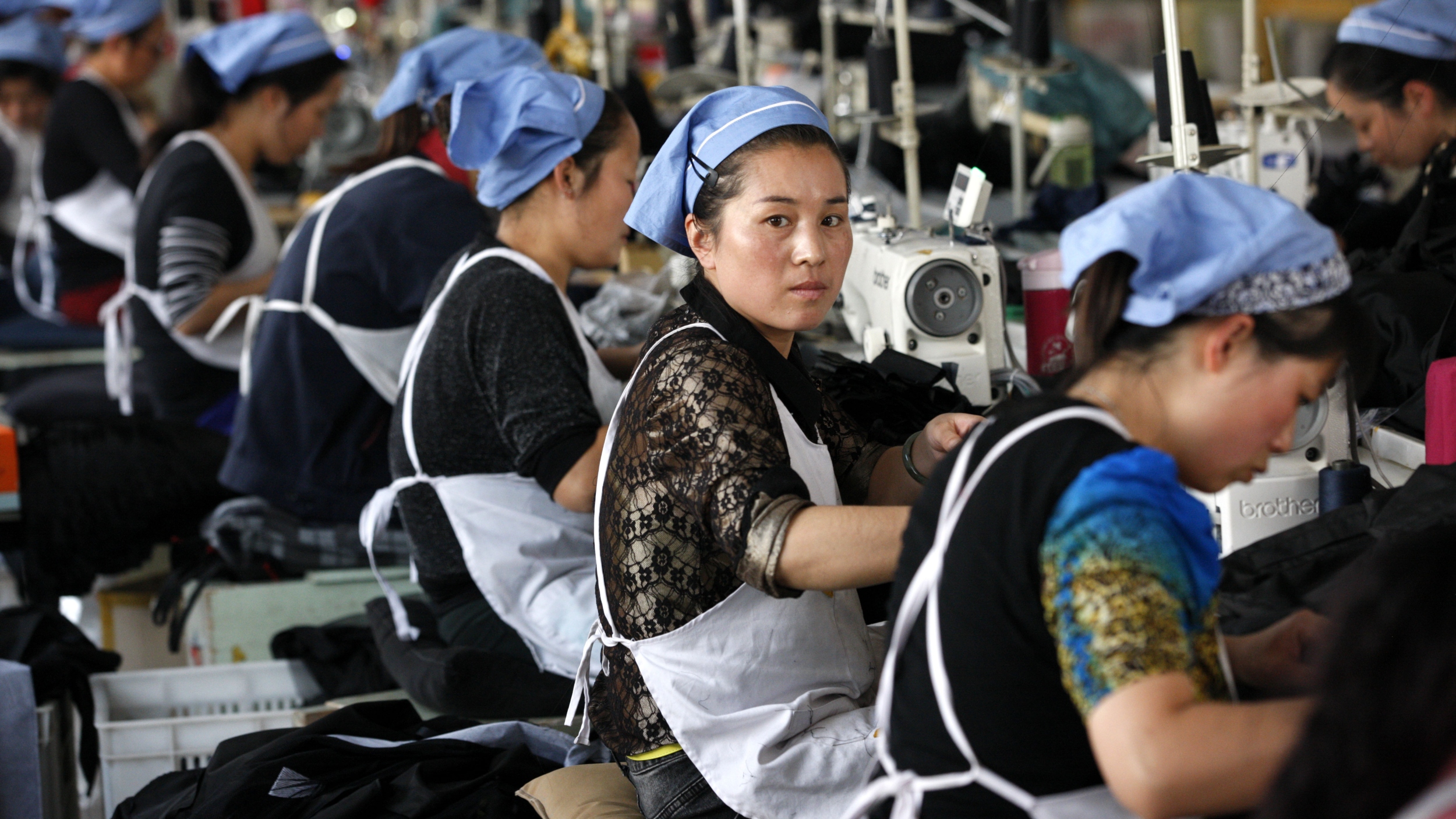Improving the Lives of Apparel Workers by Creating an Ethical Apparel Index

The Supply Chain Resource Cooperative is proud to announce the award of a major research grant ($1.2 million) from the Templeton World Charity Fund, that will be used to develop an Ethical Apparel Index and launch a new initiative under the SCRC umbrellas. As noted in this news cast on ABC, this research will proceed in three stages over three years, and will require significant collaboration with apparel manufacturers and brands along the way if it is to be successful.
Unethical working conditions among apparel supply chains present substantial challenges for brands’ pursuit of corporate social responsibility (CSR) and generate systemic dysfunction. This dysfunctional state of affairs leads to modern slavery conditions for workers, opportunity loss for factory owners, reputational risk for brands for whom these factories produce and confusion among consumers who increasingly seek products that are produced ethically. The goal of this project is to undertake research that will support the development of a transparency mechanism to promote ethical production in global apparel supply chains, by rewarding stakeholders that uphold the ethical treatment of workers in factories. This mechanism is a communication-based tool referred to as the Ethical Apparel Index (EAI) – which will serve as an objective indicator of fair labor standards and working conditions in apparel factories that can be effectively communicated to consumers and additional supply chain stakeholders (i.e., brands and investors).
Our vision is that EAI will summarize indicators of forced labor and slavery in factories, violations of minimum and living wages, standard building safety and housing conditions, and freedom of association. Note that the index will not encompass environmental stewardship, but focuses only on wage equality, ethical treatment of workers, work place safety, and reasonable hours of work within apparel factory workplaces. The index will rely on existing data that illustrate factory conditions, producing a simple and objective indicator, allowing consumers to exercise informed ethical buying behavior in the apparel market. The associated question that this effort addresses is whether increased supply chain transparency, facilitated by the proposed EAI, will positively impact ethical behaviors of factory owners towards individuals in supply chains and result in greater individual freedoms among workers and consumers, due to a more transparent market for apparel. The indicators used to create the EAI are directly aligned with the philanthropic vision of Sir John Templeton espousing human empowerment and social betterment. “Every one of us is able to surmount obstacles that may occur in our lives if we are determined, courageous and willing to work towards greater progress.”[2] Similarly, change in low cost apparel factories can occur not simply through regulatory compliance, but rather through market-led incentives driven by consumer-facing indicators associated with progress for apparel factories serving Western markets.
To create the EAI, we will be engaging in three major research components over the next three years. First, we propose employing desk and field research to establish a refined set of social responsibility criteria based on secondary data. Second, we will conduct a series of Delphi surveys among experts representing the primary stakeholder groups including factory owners, auditors, brand compliance officers and additional entities. Finally, inputs from this research will generate the EAI framework. Concurrently, two consumer behavior studies will be deployed: a series of consumer experiments using an online crowdsourcing service to gain initial insights into consumers’ perceptions for CSR; followed by a series of focused lab experiments. Findings from the online and lab experiments will inform the design of the EAI. Specifically, the experimental findings will identify ways to communicate CSR information (e.g., message format) in a manner that influences consumers’ willingness-to-buy, generates brand trust and disseminates greater understanding of CSR criteria. In the third research component, the EAI will be integrated based on inputs and metric insights (through a series of weights applied to the data) determined in the research. The EAI will be piloted with an industry partner to assess feasibility and consumer receptiveness & comprehension. In addition, during the consumer lab studies, several names for the index will be tested to elicit the highest impact response that will influence consumer behavior which will help to determine the final name for the index.
The primary output of the project will be the generation of the EAI and an approach for communicating this information to consumers and other stakeholders. The EAI will provide a third-party metric to generate marketing media (e.g., labels) for brands to promote their CSR compliance directly to consumers. Generation of an EAI that is aligned with consumer understanding can facilitate public participation in promoting incentives for companies to improve working conditions and fair wages for workers in the apparel sector. Our rationale is that market forces can be created through a simple and transparent index which links factory conditions to a garment in a clothing store or an online website, and the consumer’s purchase decision rewards those who choose to adhere to baseline global labor and factory standards.
Bearing in mind the assumption that transparency promotes ethical behavior, the positive impacts of an effective EAI will transform an opaque, unjust system into one that is open and relies on accountability to gain market power, rewarding factories that protect workers, recognizing brands that select ethical source factories, encouraging ethical investment and providing ethical choices to consumer. Ultimately, the people who toil in horrible working conditions tomake the garments you wear every day will be the primary winners of this work.
[1] https://www.ilo.org/global/standards/introduction-to-international-labour-standards/conventions-and-recommendations/lang–en/index.htm
[2] Templeton, J. “Wisdom from World Religions”, p. 102.


